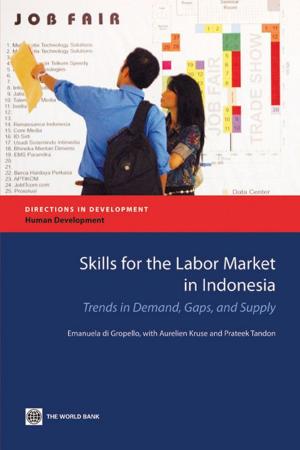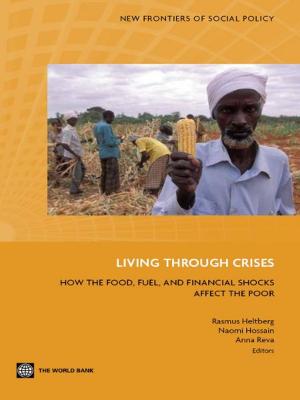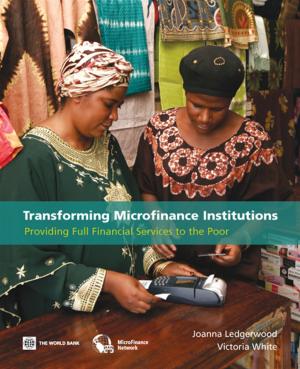Carbon Footprints And Food Systems: Do Current Accounting Methodologies Disadvantage Developing Countries?
Business & Finance, Industries & Professions, Industries| Author: | Brenton Paul; Edwards-Jones Gareth; Jensen Michael Friis | ISBN: | 9780821385449 |
| Publisher: | World Bank | Publication: | September 21, 2010 |
| Imprint: | Language: | English |
| Author: | Brenton Paul; Edwards-Jones Gareth; Jensen Michael Friis |
| ISBN: | 9780821385449 |
| Publisher: | World Bank |
| Publication: | September 21, 2010 |
| Imprint: | |
| Language: | English |
This report addresses carbon labeling schemes, a high-profile issue and one that has important economic implications for developing countries. Carbon accounting and labeling instruments are designed to present information on greenhouse gas emissions (GHG) from supply chains. These instruments have become an important awareness-raising channel for governments, producers, retailers and consumers to bring about the reduction of GHGs. At the same time, they have emerged as a crucial element of supply chain management, trade logistics and, potentially, trade regulations between countries. But the underlying science of GHG emissions is only partially developed. Many of these schemes are based on rudimentary knowledge of GHG emissions and have mainly been designed by industrialized countries. There is a concern that these systems do not accurately reflect production processes in developing countries, and that they may even shift consumer preferences away from developing country exports. The report includes an analysis of current and emerging carbon labeling schemes and an assessment of available data, emissions factors and knowledge gaps of carbon footprinting methodologies. The report also analyzes carbon accounting methodologies for sugar and pineapple products from Zambia and Mauritius according to PAS 2050 guidelines, to illustrate whether these schemes accurately represent the production systems in developing countries. The report concludes with a series of recommendations on how carbon footprint labeling can be made more development-friendly.
This report addresses carbon labeling schemes, a high-profile issue and one that has important economic implications for developing countries. Carbon accounting and labeling instruments are designed to present information on greenhouse gas emissions (GHG) from supply chains. These instruments have become an important awareness-raising channel for governments, producers, retailers and consumers to bring about the reduction of GHGs. At the same time, they have emerged as a crucial element of supply chain management, trade logistics and, potentially, trade regulations between countries. But the underlying science of GHG emissions is only partially developed. Many of these schemes are based on rudimentary knowledge of GHG emissions and have mainly been designed by industrialized countries. There is a concern that these systems do not accurately reflect production processes in developing countries, and that they may even shift consumer preferences away from developing country exports. The report includes an analysis of current and emerging carbon labeling schemes and an assessment of available data, emissions factors and knowledge gaps of carbon footprinting methodologies. The report also analyzes carbon accounting methodologies for sugar and pineapple products from Zambia and Mauritius according to PAS 2050 guidelines, to illustrate whether these schemes accurately represent the production systems in developing countries. The report concludes with a series of recommendations on how carbon footprint labeling can be made more development-friendly.















